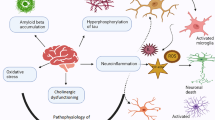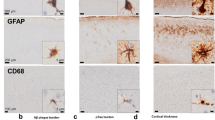Abstract
Purpose
Neuroinflammation and microglial activation are the key factors in neurodegenerative motor neuron diseases. Microglial activation has been link to disease progression in humans. This study investigated the transport and potential effects of l-arginine under pathological conditions in a human microglial cell line.
Methods
Transport study was performed using [3H]l-arginine isotope and uptake was measured in the human microglial clone 3 (HMC-3) cell line. MTT assay was performed for cell viability analysis. mRNA expression of cationic amino acid transporter-1 (CAT-1) was also determined.
Results
The transport of l-arginine was time- and concentration-dependent in HMC-3 cell lines. Kinetic parameters revealed carrier-mediated arginine transport via CAT-1, with high affinity and low capacity at high-affinity sites and low affinity and high capacity at low-affinity sites. HMC-3 cells pretreated with glutamate exhibited decreased viability. [3H]l-arginine uptake increased markedly with glutamate pretreatment, whereas co-treatment with arginine further increased the uptake. After tumor necrosis factor α and lipopolysaccharide pretreatment, [3H]l-arginine uptake significantly increased. In contrast, the uptake was significantly decreased after co-treatment of the cells with unlabeled l-arginine. The mRNA expression of CAT-1 showed a similar uptake pattern. Various pharmacological drugs including donepezil, quinidine, verapamil and tramadol significantly inhibited the uptake of [3H]l-arginine in HMC-3 cell line.
Conclusion
These results suggest that l-arginine supplementation may play an effective role against inflammatory states in neurodegenerative diseases.




Similar content being viewed by others
Data availability
The data that support the findings of this study are included in this article.
References
Andreou KE, Soto MS, Allen D et al (2017) Anti-inflammatory microglia/macrophages as a potential therapeutic target in brain metastasis. Front Oncol 7:1–13. https://doi.org/10.3389/fonc.2017.00251
Ashford BA, Boche D, Cooper-Knock J et al (2021) Review: microglia in motor neuron disease. Neuropathol Appl Neurobiol 47:179–197. https://doi.org/10.1111/nan.12640
Baek M, Yoo E, Choi HI et al (2021) The BET inhibitor attenuates the inflammatory response and cell migration in human microglial HMC3 cell line. Sci Rep 11:1–13. https://doi.org/10.1038/s41598-021-87828-1
Banga JD (1998) Invited review. Vasc Surg 32:245–247. https://doi.org/10.1177/153857449803200307
Barger SW, Goodwin ME, Porter MM, Beggs ML (2007) Glutamate release from activated microglia requires the oxidative burst and lipid peroxidation. J Neurochem 101:1205–1213. https://doi.org/10.1111/j.1471-4159.2007.04487.x
Block ML, Hong JS (2005) Microglia and inflammation-mediated neurodegeneration: multiple triggers with a common mechanism. Prog Neurobiol 76:77–98. https://doi.org/10.1016/j.pneurobio.2005.06.004
Chen SF, Pan MX, Tang JC et al (2020) Arginine is neuroprotective through suppressing HIF-1α/LDHA-mediated inflammatory response after cerebral ischemia/reperfusion injury. Mol Brain 13:1–13. https://doi.org/10.1186/s13041-020-00601-9
Cho KS, Lee EJ, Kim JN et al (2015) Proteinase 3 induces neuronal cell death through microglial activation. Neurochem Res 40:2242–2251. https://doi.org/10.1007/s11064-015-1714-y
Dello Russo C, Cappoli N, Coletta I et al (2018) The human microglial HMC3 cell line: where do we stand? A systematic literature review. J Neuroinflammation 15:1–24. https://doi.org/10.1186/s12974-018-1288-0
Foster LA, Salajegheh MK (2019) Motor neuron disease: pathophysiology, diagnosis, and management. Am J Med 132:32–37. https://doi.org/10.1016/j.amjmed.2018.07.012
Gyawali A, Kang YS (2019) Blood-to-retina transport of imperatorin involves the carrier-mediated transporter system at the inner blood-retinal barrier. J Pharm Sci 108:1619–1626. https://doi.org/10.1016/j.xphs.2018.11.040
Hassamal S, Miotto K, Dale W, Danovitch I (2018) Tramadol: understanding the risk of serotonin syndrome and seizures. Am J Med 131:1382.e1-1382.e6. https://doi.org/10.1016/j.amjmed.2018.04.025
Hong M, Schlichter L, Bendayan R (2001) A novel zidovudine uptake system in microglia. J Pharmacol Exp Ther 296:141–149
Hwang J, Hwang H, Lee HW, Suk K (2010) Microglia signaling as a target of donepezil. Neuropharmacology 58:1122–1129. https://doi.org/10.1016/j.neuropharm.2010.02.003
Itagaki S, Gopal E, Zhuang L et al (2006) Interaction of ibuprofen and other structurally related NSAIDs with the sodium-coupled monocarboxylate transporter SMCT1 (SLC5A8). Pharm Res 23:1209–1216. https://doi.org/10.1007/s11095-006-0023-1
Kan MJ, Lee JE, Wilson JG et al (2015) Arginine deprivation and immune suppression in a mouse model of Alzheimer’s disease. J Neurosci 35:5969–5982. https://doi.org/10.1523/JNEUROSCI.4668-14.2015
Khamdang S, Takeda M, Noshiro R et al (2002) Interactions of human organic anion transporters and human organic cation transporters with nonsteroidal anti-inflammatory drugs. J Pharmacol Exp Ther 303:534–539. https://doi.org/10.1124/jpet.102.037580
Kim J-H, Afridi R, Cho E et al (2022) Soluble ANPEP released from human astrocytes as a positive regulator of microglial activation and neuroinflammation: brain renin–angiotensin system in astrocyte–microglia crosstalk. Mol Cell Proteomics 21:100424. https://doi.org/10.1016/j.mcpro.2022.100424
Kremer JC, Prudner BC, Lange SES et al (2017) Arginine deprivation inhibits the Warburg effect and upregulates glutamine anaplerosis and serine biosynthesis in ASS1-deficient cancers. Cell Rep 18:991–1004. https://doi.org/10.1016/j.celrep.2016.12.077
Lai Y, Zhong XB (2022) Special section on new era of transporter science: unraveling the functional role of orphan transporters-editorial. Drug Metab Dispos 50:1190–1192. https://doi.org/10.1124/dmd.122.001014
Latif S, Kang Y (2021a) Change in cationic amino acid transport system and effect of lysine pretreatment on inflammatory state in amyotrophic lateral sclerosis cell model. Biomol Ther (Seoul) 29:498–505. https://doi.org/10.4062/biomolther.2021.037
Latif S, Kang YS (2021b) Differences of transport activity of arginine and regulation on neuronal nitric oxide synthase and oxidative stress in amyotrophic lateral sclerosis model cell lines. Cells 10:3554. https://doi.org/10.3390/cells10123554
Latif S, Kang Y-S (2022) Protective effects of choline against inflammatory cytokines and characterization of transport in motor neuron-like cell lines (NSC-34). Pharmaceutics 14:2374. https://doi.org/10.3390/pharmaceutics14112374
Latif S, Choi S-H, Gyawali A et al (2022) Antioxidant and neuroprotective effects of paeonol against oxidative stress and altered carrier-mediated transport system on NSC-34 cell lines. Antioxidants 11:1392. https://doi.org/10.3390/antiox11071392
Lee NY, Kang YS (2016) In vivo and in vitro evidence for brain uptake of 4-phenylbutyrate by the monocarboxylate transporter 1 (MCT1). Pharm Res 33:1711–1722. https://doi.org/10.1007/s11095-016-1912-6
Lee J, Ryu H, Kowall NW (2009a) Motor neuronal protection by l-arginine prolongs survival of mutant SOD1 (G93A) ALS mice. Biochem Biophys Res Commun 384:524–529. https://doi.org/10.1016/j.bbrc.2009.05.015
Lee J, Ryu H, Kowall NW (2009b) Differential regulation of neuronal and inducible nitric oxide synthase (NOS) in the spinal cord of mutant SOD1 (G93A) ALS mice. Biochem Biophys Res Commun 387:202–206. https://doi.org/10.1016/j.bbrc.2009.07.007
Lee J, Hyeon SJ, Im H et al (2016) Astrocytes and microglia as non-cell autonomous players in the pathogenesis of ALS. Exp Neurobiol 25:233–240. https://doi.org/10.5607/en.2016.25.5.233
Lee NY, Kim Y, Ryu H, Kang YS (2017) The alteration of serine transporter activity in a cell line model of amyotrophic lateral sclerosis (ALS). Biochem Biophys Res Commun 483:135–141. https://doi.org/10.1016/j.bbrc.2016.12.178
Lively S, Schlichter LC (2018) Microglia responses to pro-inflammatory stimuli (LPS, IFNγ + TNFα) and reprogramming by resolving cytokines (IL-4, IL-10). Front Cell Neurosci 12:1–19. https://doi.org/10.3389/fncel.2018.00215
Moreira NCDS, Lima JEB, de Marchiori F et al (2022) Neuroprotective effects of cholinesterase inhibitors: current scenario in therapies for Alzheimer’s disease and future perspectives. J Alzheimer’s Dis Reports 6:177–193. https://doi.org/10.3233/ADR-210061
Morgan SC, Taylor DL, Pocock JM (2004) Microglia release activators of neuronal proliferation mediated by activation of mitogen-activated protein kinase, phosphatidylinositol-3-kinase/akt and delta-notch signalling cascades. J Neurochem 90:89–101. https://doi.org/10.1111/j.1471-4159.2004.02461.x
Muzio L, Viotti A, Martino G (2021) Microglia in neuroinflammation and neurodegeneration: from understanding to therapy. Front Neurosci 15:742065. https://doi.org/10.3389/fnins.2021.742065
Ryu H, Lee J, Hagerty SW et al (2006) ESET/SETDB1 gene expression and histone H3 (K9) trimethylation in Huntington’s disease. Proc Natl Acad Sci U S A 103:19176–19181. https://doi.org/10.1073/pnas.0606373103
Tachikawa M, Hirose S, Akanuma SI et al (2018) Developmental changes of l-arginine transport at the blood-brain barrier in rats. Microvasc Res 117:16–21. https://doi.org/10.1016/j.mvr.2017.12.003
Tomi M, Kitade N, Hirose S et al (2009) Cationic amino acid transporter 1-mediated l-arginine transport at the inner blood-retinal barrier. J Neurochem 111:716–725. https://doi.org/10.1111/j.1471-4159.2009.06367.x
Yi J, Horky LL, Friedlich AL et al (2009) l-arginine and Alzheimer’s disase. Int J Clin Exp Pathol 2:211–238
Acknowledgements
The authors thank Dr. Ryu Hoon from the Korea Institute of Science and Technology for providing the cell lines. This work was supported by the National Research Foundation of Korea (NRF) grant funded by the Korean government (MSIT) (No. 2019R1F1A1044048) (YSK).
Author information
Authors and Affiliations
Contributions
YSK conceived and designed the experiments and wrote and reviewed the manuscript. SL performed the experiments, collected and analyzed the data, and wrote the manuscript. All the authors have read and approved the final manuscript.
Corresponding author
Ethics declarations
Conflict of interest
All authors (S. Latif and Y.S. Kang) declare no conflict of interest.
Statement of human and animal rights
This article does not contain any studies with human and animal subjects performed by any of the authors.
Additional information
Publisher’s Note
Springer nature remains neutral with regard to jurisdictional claims in published maps and institutional affiliations.
Rights and permissions
Springer Nature or its licensor (e.g. a society or other partner) holds exclusive rights to this article under a publishing agreement with the author(s) or other rightsholder(s); author self-archiving of the accepted manuscript version of this article is solely governed by the terms of such publishing agreement and applicable law.
About this article
Cite this article
Latif, S., Kang, YS. The effects of pro-inflammatory cytokines and glutamate on l-arginine transport in a human microglial cell line (HMC-3). J. Pharm. Investig. 54, 77–84 (2024). https://doi.org/10.1007/s40005-023-00648-5
Received:
Accepted:
Published:
Issue Date:
DOI: https://doi.org/10.1007/s40005-023-00648-5




